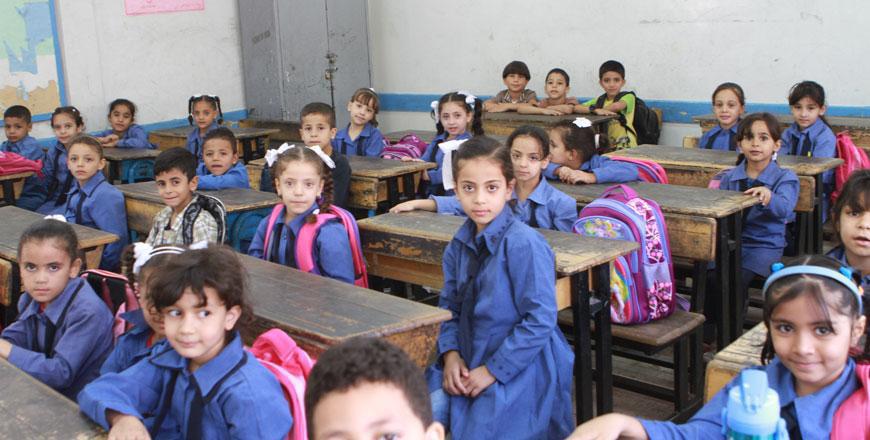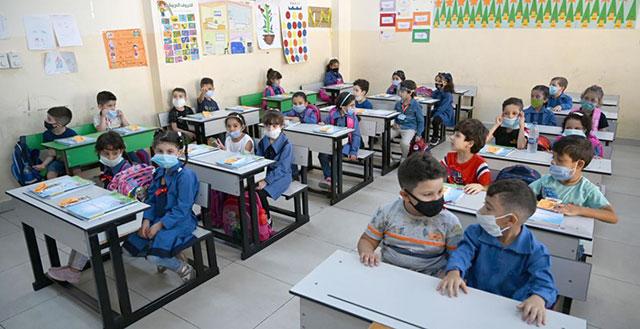You are here
Gov’t announces students’ gradual return to schools next semester
By Rana Husseini - Jan 13,2021 - Last updated at Jan 13,2021

The government announces on Wednesday the gradual return of students to their schools starting from the coming second semester according to protocols aiming at safeguarding public health (JT file photo)
AMMAN — Prime Minister Bisher Al Khasawneh on Wednesday announced the gradual return of students to their schools starting this coming second semester.
The premier’s remarks were made during his address to the deputies ahead the vote of confidence session.
“The government is committed to ensuring the gradual return of students to schools and this will be done in accordance with a protocol that will be announced by the minister of education at a later stage,” Al Khasawneh told lawmakers.
On Tuesday, His Majesty King Abdullah directed the government to reopen schools and various sectors in a systematic manner that safeguards public health and the national economy.
While chairing a National Policies Council (NPC) meeting, attended by HRH Crown Prince Hussein, the King stressed that public health has been the top priority since the outbreak of the pandemic, noting recent improvements in the epidemiological situation..
Meanwhile, the National Campaign for the Return to Schools on Wednesday welcomed recent Royal directives to the government to reopen the schools.
“We really appreciate His Majesty's directives for the government to allow students to return to schools under strict health conditions,” said active campaign member Nadine Nimri.
She told The Jordan Times that the campaign hopes that “the government would apply these directives in a constructive and gradual manner”.
“The majority of students have been studying online since March and it is important to conduct assessments regarding their academic performance and what they have missed during this long period,” Nimri said.
Meanwhile, the campaign organisers released the findings of an online survey in cooperation with the Jordanian National Commission for Women on the consequence of distance learning that was conducted on 25,000 parents and students regarding distance learning, Nimri said.
“The survey was conducted between November 14 and November 18 using social media platforms such as Facebook and WhatsApp and covered 25,000 individuals comprising students and parents,” Nimri noted.
The survey revealed that 81 per cent of the parents felt that their children’s academic performance became worse.
Meanwhile, around 57 per cent of the parents do not believe that sending their children to schools will cause any threats to them or their families.
In addition, the survey stated that 70 per cent of the families favour in-class education over distance learning.
The campaign has been calling on the government to take a “decisive and immediate decision” to reopen schools and nurseries and to allow parents to choose between in-class education or distance learning method that has been applied since the outbreak of the pandemic.
Campaign organisers warned of the economic repercussions of the pandemic on parents, students and business owners.
Meanwhile, the head of the UN Children’s Fund (UNICEF) on Tuesday said that “no effort should be spared” to keep children’s education in school, as the coronavirus pandemic continues into a second year.
“Despite overwhelming evidence of the impact of school closures on children, and despite increasing evidence that schools are not drivers of the pandemic, too many countries have opted to keep schools closed, some for nearly a year”, Henrietta Fore said in a statement that was made available to The Jordan Times.
The UNICEF chief highlighted that the cost of closing schools has been devastating, with 90 per cent of students globally facing shutdowns at the peak of the COVID disruptions last year, leaving more than a third of schoolchildren with no access to remote education.
“The number of out-of-school children is set to increase by 24 million, to a level we have not seen in years and have fought so hard to overcome”, she said.
“Children’s ability to read, write and do basic math has suffered, and the skills they need to thrive in the 21st century economy have diminished,” Fore added.
Related Articles
AMMAN — Civil society institutions and concerned individuals have announced the launch of the “National Campaign for the Return to Schools”,
AMMAN — The government’s decision to suspend in-class education to curb the spread of the coronavirus has evoked mixed reactions from parent
AMMAN — Families and activists on Monday criticised the recent announced government protocols to allow students to return to school and kind















